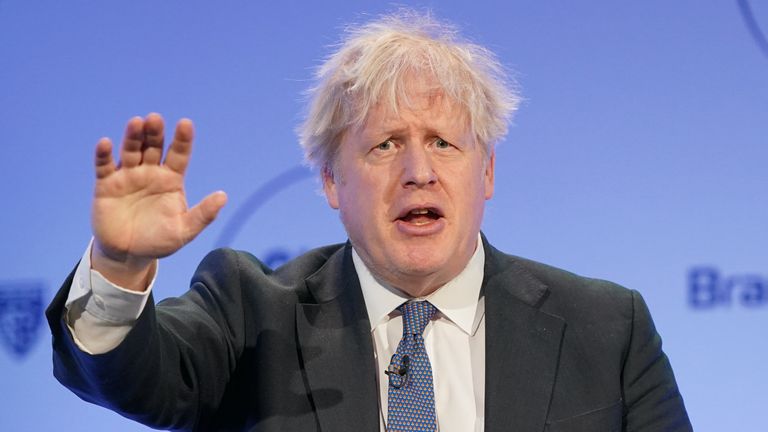Labour stands firm on nationalizing railways despite Tory skepticism over funding
The shadow transport secretary says her party will finally establish Great British Railways to “get Britain moving”, but the current rail minister accuses Labour of having no plan to pay for it.
Labour will promise to deliver the biggest shake-up to rail “in a generation” by establishing the long-delayed Great British Railways (GBR) organisation and bringing routes back into public ownership.
Making the announcement in a speech on Thursday, shadow transport secretary Louise Haigh will also pledge to establish a “best-price ticket guarantee” for travellers, offer automatic “delay repay” schemes and make digital season tickets available across the network.
However, the Conservative Party has fiercely criticized the proposals, asserting that the Labour Party lacks a clear strategy to finance them.
GBR was first proposed in 2021 after a review of the railways, with the aim of simplifying the franchise system and rebuilding passenger numbers after they fell dramatically during the pandemic.
The proposed public body promised to assume Network Rail’s responsibility for track and stations, as well as taking charge of ticketing, timetables and network planning.
But despite getting backing from Boris Johnson and his ministers, its establishment has faced continuous delays and the organization has yet to see the light of day.
Labour is now pledging to get GBR up and running if they win the next election, with some additional pledges of their own.
The party said the body, which would be run by industry experts rather than government officials, would end the “fragmentation, waste and bureaucracy” of the current network.
And it would “stop profits leaking out to private operators” by taking charge of passenger lines when franchises run out, eventually leading eventually to the whole passenger network being publicly owned.
Labor said this method would prevent taxpayers from having to cover any compensation to the operators that would be due if they renationalized the railways immediately.
The party also pledged to create a new independent watchdog called the Passenger Standards Authority to ensure GBR keeps up its standards.
And it committed to introducing a statutory duty on GBR to promote the use of rail freight—still owned by private firms—to cut carbon emissions and reduce lorry traffic.
1. Ms. Haigh emphasized that under Labour’s ambitious reforms, a publicly owned railway will prioritize meeting the needs of passengers and will be responsible for providing dependable, secure, efficient, inclusive, cost-effective, and high-quality services.
“Labour’s detailed plans will get our railways back on track, driving up standards for passengers, bringing down costs for taxpayers, driving growth, and getting Britain moving.”
The proposals have won the backing of Keith Williams, one of the experts behind the rail review, who recommended the creation of GBR three years ago.
He said its creation would “deliver a better railway for passengers and freight,” adding: “Running a better railway and driving revenue and reducing costs will deliver economic growth, jobs, and housing by delivering better connectivity.”
But the Conservative rail minister Huw Merriman attacked Labour’s plans as “pointless, unfunded rail nationalisation that will do nothing to improve train reliability or affordability for passengers,” adding: “Without a plan to pay for this, it means one thing: taxes will rise on hard-working people.”
Andy Bagnall, the CEO of Rail Partners and representative of private operators, supported his criticism by stating that although train companies acknowledge the necessity for change, nationalization is a political solution rather than a practical one that will ultimately lead to increased costs.
Read more:
Starmer Calls for Probe into Tory MP’s Questionable Business Transactions and Ties
Mounting Pressure for Rishi Sunak to Label Iran’s Revolutionary Guards as Terrorists
Keir Starmer Faces Backlash as Labour MPs Reject Union Jack Campaign Material



